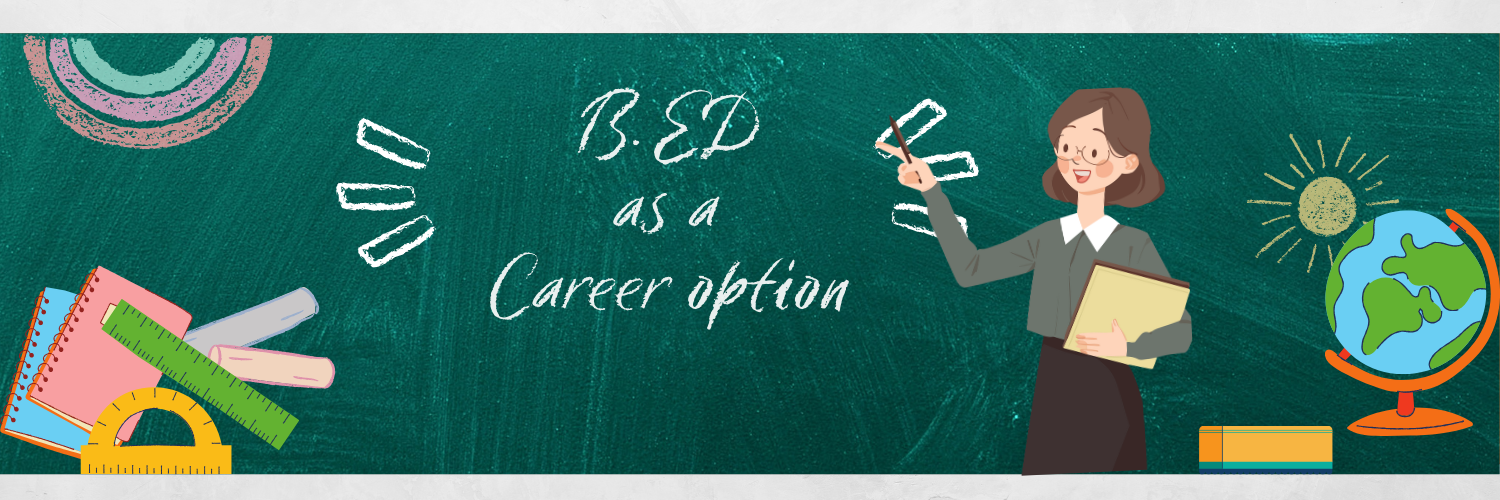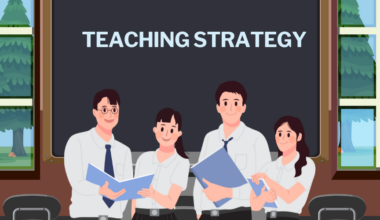Education goes beyond textbooks and classrooms; it’s about shaping futures. If you’ve ever wanted to inspire kids, spark curiosity, and make a lasting impact, then getting a B.Ed. (Bachelor of Education) might be perfect for you.
B.Ed. isn’t just about getting a degree; it’s about stepping into a world where every lesson you teach leaves a mark. Whether you’re teaching math or helping kids understand empathy, a B.Ed. opens up lots of different career paths.
In this blog post, we will explore B.Ed. as a career option:
Traditional B.Ed. Eligibility:
Typically, to pursue a B.Ed., you need to have completed your bachelor’s degree from a recognized university, regardless of your major.
Once you’ve earned your bachelor’s degree, you can apply for a B.Ed. programs at various colleges or universities.
Can I do a B.Ed after the 12th?
No, students cannot join B.Ed. courses immediately after class 12th. You need to complete your graduation in any stream with at least 50% marks to be eligible for a B.Ed course.
However, there is an integrated program called B.El.Ed (Bachelor of Elementary Education) that you can pursue after 12th.
Integrated B.Ed. (B.El.Ed.) seamlessly combines educational theory, practical training, and subject-specific knowledge.
Advantages of Integrated B.Ed.:
Early Specialization:
- By choosing an integrated B.Ed., you immerse yourself in the field of education earlier.
- You acquire a deeper understanding of teaching methodologies right from the start.
Streamlined Path:
- There’s no need to switch gears after graduating; you’re already on the right path.
- Integrated B.Ed. saves time and offers a focused trajectory.
Holistic Development:
- These programs stress both subject knowledge and pedagogy.
- You develop teaching skills alongside your chosen area of study.
Eligibility for Integrated B.Ed.:
- To qualify for integrated B.Ed., you must have completed 12th grade (senior secondary education).
- The specific eligibility requirements may vary depending on the university or college offering the program.
- Some institutions may demand a minimum percentage in 12th-grade board exams.
Subjects Covered in Integrated B.Ed.:
Integrated B.Ed. programs encompass subjects such as education, child psychology, teaching methodologies, and your selected specialization (e.g., science, arts, commerce).
Career Opportunities After B.Ed.
- Teaching Roles:
With a B.Ed., you can start your journey as a teacher, a job where you play a big part in helping students learn and grow. Whether you’re teaching math, science, stories, or anything else, you’ll be there to guide students through their school days and help them reach their goals.
- Private Schools and Coaching Centers:
Private schools and coaching centers are always looking for good teachers, like B.Ed. grads. In these places, you’ll have the chance to help shape young minds in a supportive setting. Plus, coaching centers need teachers to help students do well in their subjects and overcome challenges.
- Education Consulting and Tutoring:
Your knowledge as a B.Ed. graduate is really valuable in education consulting. Here, you can help students and families make smart choices about school. Also, offering tutoring helps students understand tricky topics better and do their best in their studies.
- Research and Making Educational Materials:
With a B.Ed., you can delve into the world of educational research, exploring innovative teaching methodologies and crafting engaging lesson plans that resonate with students. Additionally, you can contribute to the development of educational materials such as textbooks and online resources, enhancing the learning experience for students across various subjects and grade levels.
- Online Teaching and Starting Your Own Business:
Trying out online teaching platforms lets you connect with students from all over, no matter where you are. Or, you could start your own tutoring business to give students special help that suits them best.
- Policy-Making and Writing:
Some B.Ed. graduates find gratifying roles in educational policy-making, where they actively contribute to shaping the future of education through the formulation of new regulations and initiatives. Moreover, exploring writing opportunities enables you to share insights and narratives about education through various media channels, fostering dialogue and driving positive change within the educational landscape.
- Advanced Degrees and Specialization:
After getting your B.Ed., you can keep learning and get a Master of Education or a Ph.D. These degrees let you learn even more about teaching and leading schools. You can make a big difference in how education works and help students succeed even more.
Challenges and Considerations
- Academic Rigor:
In B.Ed. programs, students have to work hard to learn all about teaching. This means they need to do their best in classes, think deeply about what they’re learning, and handle a lot of schoolwork.
- Coursework and Assignments:
In B.Ed., students learn about many different things, like how education works, different ways to teach subjects, how kids grow and learn, and how to check students’ work.
- Time Management and Organization:
To do well in B.Ed., students need to be good at managing their time. This means making plans, keeping track of what needs to be done, and making sure they have time for everything they need to do.
- Staying Motivated: Strategies for Success:
To stay excited about learning, students can talk to their friends and teachers for help and support, break big tasks into smaller parts, celebrate when they finish something, and ask for help when needed.
Practical Training Requirements: Bridging Theory and Practice
- Significance of Practical Training:
Doing real teaching practice is really important in B.Ed. This means getting to watch real teachers, try out teaching yourself, and work in real schools to get ready for the real world of teaching.
- Challenges in Transition:
Sometimes it’s hard to switch from learning from books to doing things for real. This might mean feeling nervous about teaching, figuring out how to teach different students, and making sure everyone behaves in class.
- Benefits of Practical Training: Building Confidence:
Even though it can be hard, doing real teaching practice helps students learn how to teach better, get feedback from experienced teachers, and feel more sure of themselves as teachers.
Conclusion
Following a B.Ed. degree after 12th grade isn’t just doable, it’s also a satisfying journey for folks who love guiding kids and making a big difference in education. If you work hard, stay determined, and get your education from the best B.Ed. college in Ghaziabad and Delhi/NCR, you can make your dream of becoming a teacher come true.






